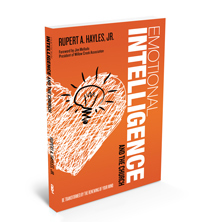Emotional and Social Intelligence (EQ or EI), the ability to recognize and respond appropriately to social and emotional cues, is often said to be the heart of personal and interpersonal effectiveness. Ask anyone who has ever worked for someone else to describe in a word or short phrase the terms which describe their best or their worst boss, and 99% of them will use terms that fall into the category of interpersonal skills and abilities. These are the managerial behaviors which seem to have profound and lasting impact on others. Often avoided in this same exercise are words that describe intellectual horsepower, business acumen, managerial technique, strategic skill, or political savvy. Further, research findings are indisputable that people don’t leave organizations; they leave bosses (colleagues, etc.). Valid EQ tools and models have been shown to be incrementally more powerful than well researched, five factor personality models as a predictor of effectiveness and success. When one develops the ability to increase the number of appropriate, behavioral responses to social and emotional stimuli, positive outcomes are most likely to occur. The overall program structure for a CESD engagement consists of four distinct parts: These parts are:
INDIVIDUALIZED (BARON EQ-I®) & GROUP ASSESSMENT (TESI®)
DEVELOPMENT PLAN
ASSOCIATE INCORPORATION
EXECUTIVE COACHING
Coaching
CERTIFICATION
PASTORAL PROGRAM
Christians struggle with the increasingly noticeable inconsistency between preaching the Word of God and truly knowing the Word of God.




